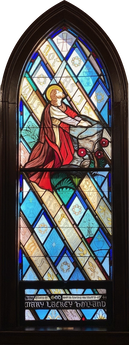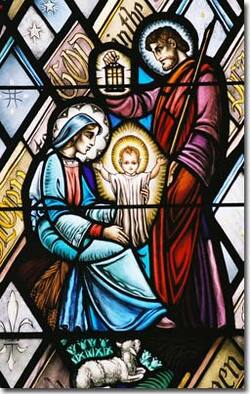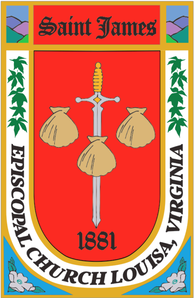What We Believe
|
The words and prayers in our liturgy come right from the Bible and from centuries of theology. In other words, what we pray at worship is what we believe. We share the creeds with the universal Church, but we do not have confessions that strictly define what it is to be Episcopalian or Anglican.
There are three important things that help us understand God and our world: Primarily we look to the Bible for knowledge of God and use tradition and reason to interpret the Bible. However, we also use tradition and our thinking to better understand ourselves, our world, and our faith. All work together to help us uncover truth. The Bible We believe that God and God’s people can speak to us through the Bible. All the things we need for a good life are in there. |
Our Tradition
We are a church with many old stories. Some of these stories connect us to Jesus and the things he taught us. Some of the stories help us understand what other people thought about God and Jesus in the past.
Reason/Thinking
We believe that in our life with God we should use our minds – we should think about the Bible, tradition, and our own experience. The Church is the people of God. The Church is not a building where people go to worship God. The Church is all of God’s people, and they work in the world to help other people know about Jesus' love for everyone. All of God’s people do God’s work.
We are a church with many old stories. Some of these stories connect us to Jesus and the things he taught us. Some of the stories help us understand what other people thought about God and Jesus in the past.
Reason/Thinking
We believe that in our life with God we should use our minds – we should think about the Bible, tradition, and our own experience. The Church is the people of God. The Church is not a building where people go to worship God. The Church is all of God’s people, and they work in the world to help other people know about Jesus' love for everyone. All of God’s people do God’s work.
Vision and Mission

As an individual congregation within the Episcopal tradition, we have expressed our vision and mission in a way that highlights the heart of St. James.
Vision:
We envision St. James Episcopal Church as a place of spiritual and personal growth where the community is caring, welcoming, and inclusive, family-centered and sustaining. We see the face of God in everyone, no matter who you are or where you are in your faith journey. Our aim is “to do justice, to love kindness, and to walk humbly with . . . God” (Micah 6:8).
Mission:
We walk in love with God and our neighbors through worship, discipleship, and service.
Our Tradition

Our spiritual life is centered on the two sacraments our Lord instituted: Holy Eucharist and Holy Baptism. We also celebrate the sacramental nature of other rites that have a more specific focus, such as confirmation, matrimony, the reconciliation of a penitent, ordination, and the laying on of hands for healing; however, the two basic sacraments of Holy Eucharist and Holy Baptism are the core of our church life. The Episcopal Church in America, like other national churches under the umbrella of the worldwide Anglican Communion, is autonomous and has its own system of governance.
Because the framers of the Constitution and Canons of the Episcopal Church were by and large the same people shaping the Constitution of the United States, our church is democratic in structure and spirit. Our bishops are not appointed but elected by lay and clergy representatives to diocesan conventions. Rectors, the chief pastors of congregations, are selected and called by parish vestries and approved by the bishop.
The Episcopal Church resists easy classification as liberal or conservative, traditional or innovative. There are differences in theology. However widely our positions may diverge, we are united first by faith in Jesus Christ and in our use of the Bible and the Book of Common Prayer.
Because the framers of the Constitution and Canons of the Episcopal Church were by and large the same people shaping the Constitution of the United States, our church is democratic in structure and spirit. Our bishops are not appointed but elected by lay and clergy representatives to diocesan conventions. Rectors, the chief pastors of congregations, are selected and called by parish vestries and approved by the bishop.
The Episcopal Church resists easy classification as liberal or conservative, traditional or innovative. There are differences in theology. However widely our positions may diverge, we are united first by faith in Jesus Christ and in our use of the Bible and the Book of Common Prayer.

